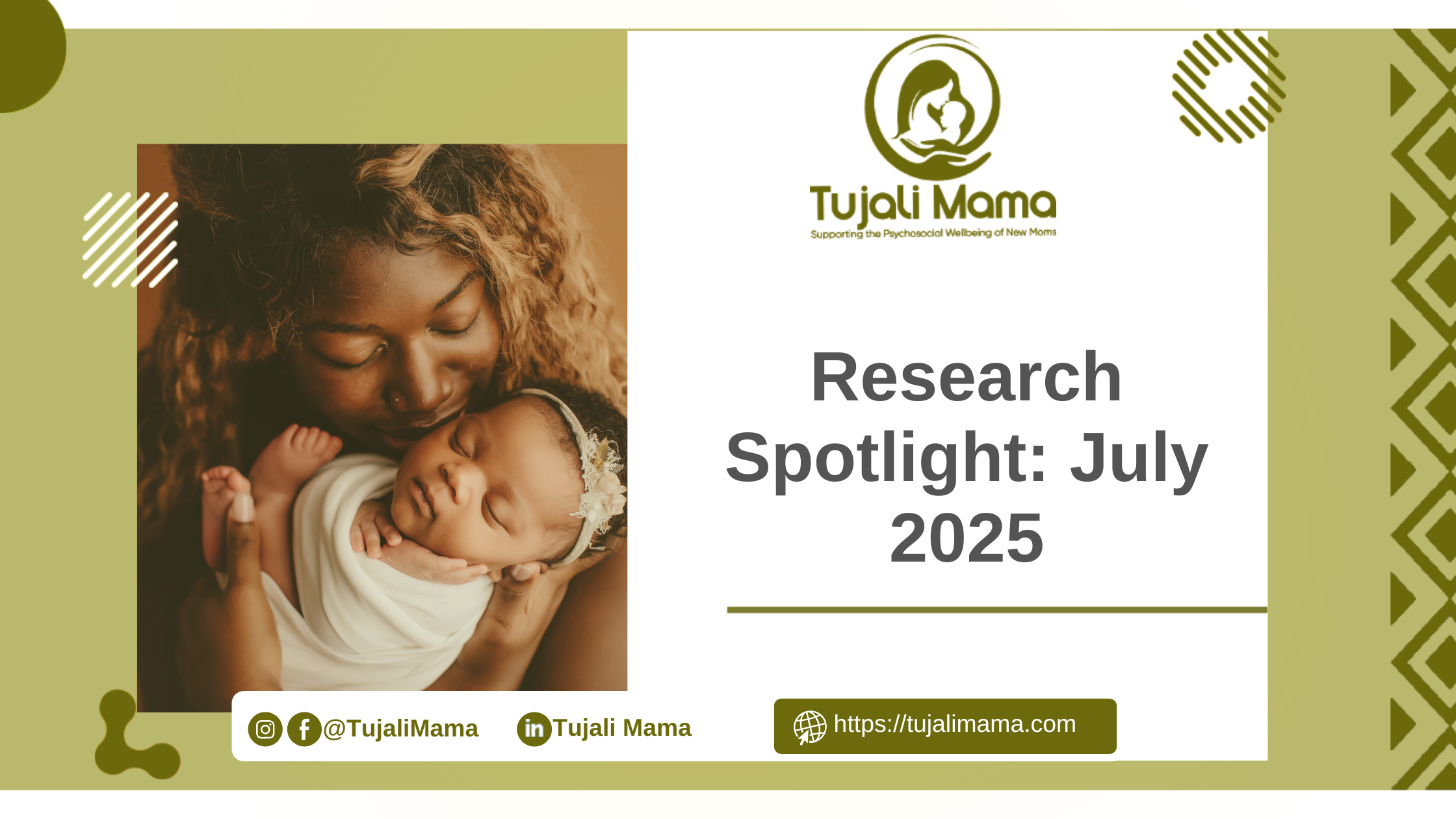
In this month’s research spotlight, we highlight four studies including one review study and three empirical studies conducted in South Africa, Ireland and Uganda.
1. Anxiety, depression and stress in pregnancy: Implications for mothers, children, research and practice (2012)
The aim of this study was to quickly review results of the latest research on the effects of depression, anxiety, and stress during pregnancy on adverse maternal and child outcomes. The review found that depression, anxiety and stress during pregnancy contributed to preterm birth, low birth weight of infants, and adverse neurodevelopmental outcomes for the child, for instance, poor long-term learning, motor development and behaviour, as well as subsequent development and health of the child.
2. Perceptions of postnatal depression and health care needs in a South African sample: the ‘mental’ in maternal health care (2014)
The purpose of this study was to explore the explanatory models of illness used by women diagnosed with postnatal depression from low socio-economic backgrounds in South Africa, and to understand the causes, course and treatment options available for their depressive symptoms. The study setting was a community health centre in an urban township with a mixture of formal and informal dwellings. The Edinburgh Postnatal Depression Scale (EPDS) was administered to participants as a first stage screening instrument, which was followed by a clinical diagnosis of depression using the Structured Clinical Interview for DSM-IV. Majority of the participants indicated that they expected to feel better after receiving help. The major causes of depression highlighted include: adverse circumstances and life events, poverty and dependence, conflicts with partners, rejection or lack of support from partner, infidelity, intimate partner violence, unwanted pregnancy, and lack of social support. The participants did not seek help for their depressive symptoms, which could be attributed to the interpersonal and economic nature of the issue as well as the stigma associated with it.
3. Prevalence of self-reported mental disorders in pregnancy and associations with adverse neonatal outcomes: a population-based cross-sectional study (2019)
The aim of this study was to evaluate the prevalence of self-reported mental disorders in women presenting to maternity services and to determine the association between history of self-reported maternal mental disorders and adverse neonatal outcomes. The study was conducted in Northern Ireland using data covering the period from January 2010 to December 2015. The study found a prevalence rate of almost 20 percent of self-reported mental disorders in pregnant women. Additionally, the study found associations between self-reported mental disorders and preterm birth, low birth weight, and APGAR score < 7 at 1 min and at 5 min.
4. Prevalence of postpartum depression and associated factors among women in Mbarara and Rwampara districts of South-western Uganda (2021)
The aim of this study was to determine the prevalence rate of postpartum depression and understand the factors associated with PPD among mothers in South-western Uganda. The study was a cross-sectional study conducted between November 2019 and June 2020 among 292 mothers who were 6 to 8 weeks postpartum. Using the Diagnostic and Statistical Manual of Mental Disorders V, the study found a PPD prevalence rate of 27.1 percent. This prevalence rate did not vary with maternal age, number of previous births or mode of delivery. Factors found to be significantly associated with PPD among the mothers include: rural residence, HIV positive serology status of the mother, perceived social support, complications during recent pregnancy, and a baby who cried excessively.




Leave a Reply